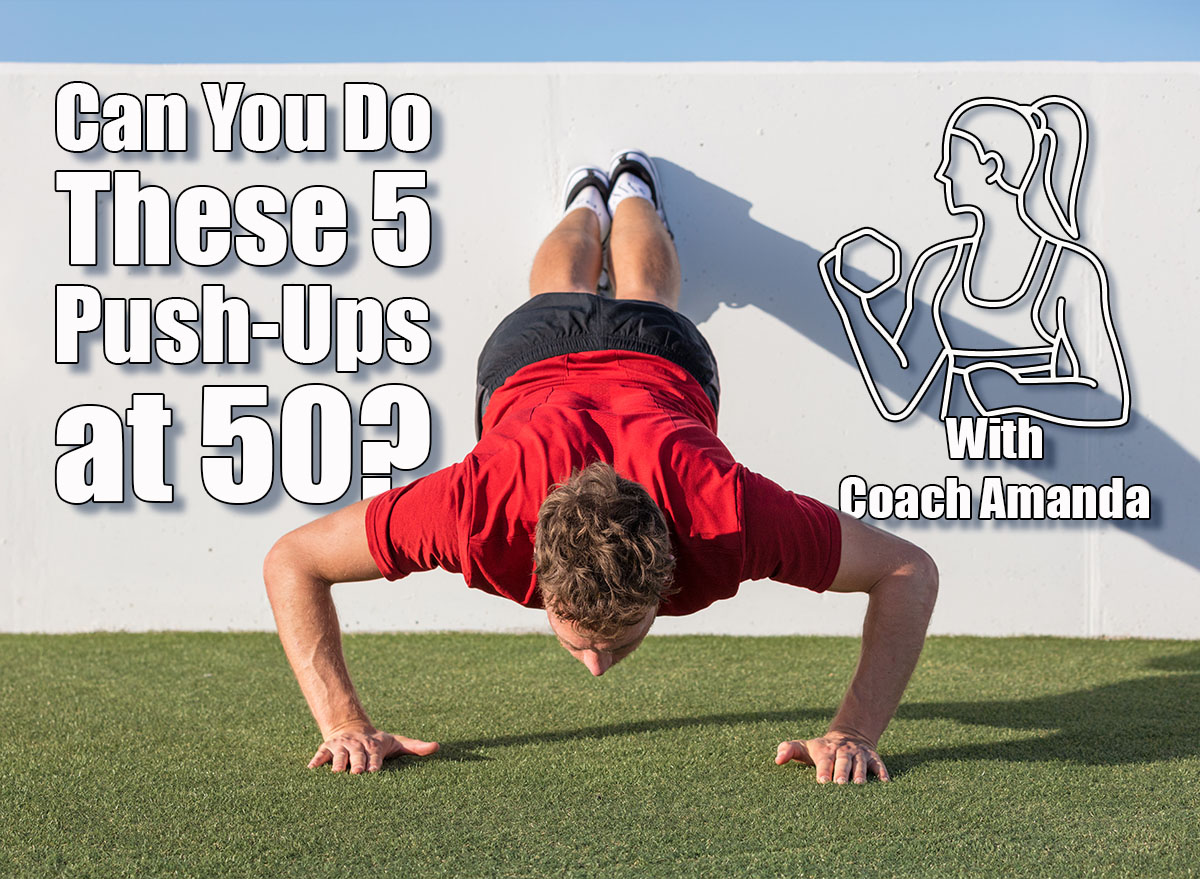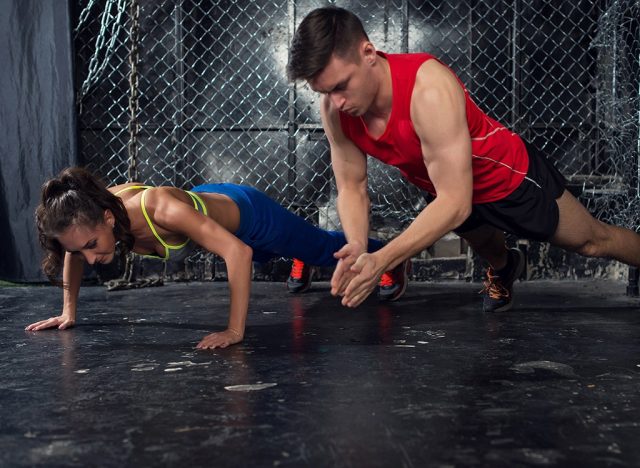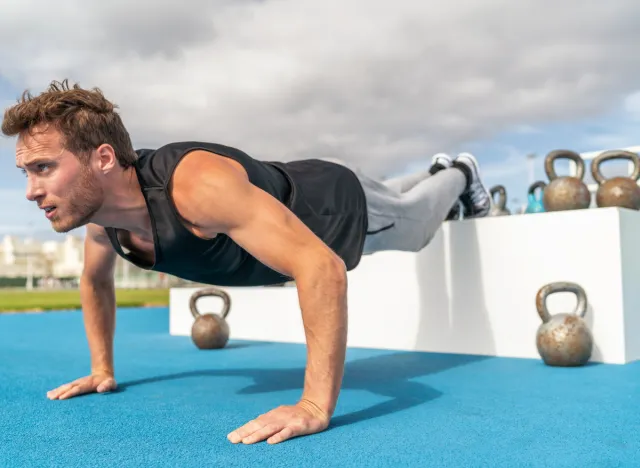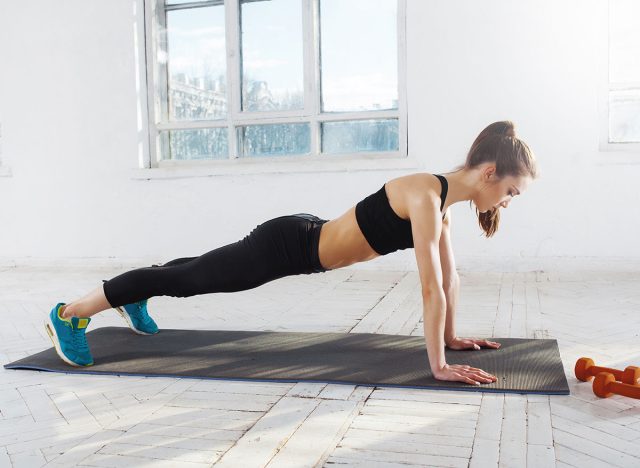If You Can Do These 5 Push-ups at 50, Your Upper Body Strength Is Elite

Push-ups use your own body weight as resistance and provide valuable insight into stability and control. After 50, your focus shouldn’t just be about building muscle—you also need to understand how well your core, joints, and nervous system work in unison, says Amanda Dvorak, certified personal trainer at Garage Gym Reviews. Push-ups can tell you where you’re strong and what areas have reduced coordination and mobility. So, if you can do these five push-up variations at 50, your upper-body strength is top-notch.
“Unlike isolation exercises, push-ups are a compound exercise for the upper body,” explains Caine Wilkes, an Olympian and certified USA weightlifting coach at BarBend. “Along with that, you’re controlling your torso to stay upright and controlled in a plank position, building on core strength and control as well. After 50, functional strength and coordination are prime indicators of your overall health, so variations test and show your upper-body strength and how well your muscle groups function together overall.”
In addition, compared to machine exercises, push-ups require active engagement from your core, arms, shoulders, and chest as you maintain alignment in your spine.
“This type of integrated strength becomes more important with age, since real-world tasks like getting up off the floor or catching yourself during a fall rely on the same coordination,” says Deb Simpson, NASM-CPT, founder of Featherweight Fitness.
Plyometric Push-ups

“Plyometric push-ups, commonly performed as clapping push-ups, challenge athletes by maintaining core strength while explosively pushing off the floor,” Caine tells us.
- Begin in a high plank with your hands shoulder-distance apart and body straight.
- Bend your elbows to lower your chest toward the ground.
- Press through your palms to rise back up and explosively push yourself off the floor.
- Clap your hands mid-air, if possible.
- Bend your elbows as you return to a pushup position.
- Immediately flow into the next rep.
Decline Push-ups

“Decline push-ups increase load and test shoulder endurance,” Amanda notes.
Caine adds, “This variation ramps up the intensity and shoulder stability by increasing the amount of body weight you’re pushing.”
- Assume a push-up position with your hands shoulder-width apart and feet elevated on a workout bench or sturdy surface.
- Bend your elbows to lower your chest toward the ground.
- Press through both palms to rise back up.
Slow Eccentric Push-ups

“Slow eccentric push-ups test control under fatigue by increasing the time under tension,” Caine points out. This variation emphasizes the lowering phase of a pushup.
- Begin in a high plank with your hands shoulder-width apart and body straight.
- Engage your core.
- Bend your elbows as you slowly start to lower your chest toward the floor. Count to 3 to 5 seconds as you lower.
- Press back up.
Archer Push-ups
“Most people have a weaker side or can’t control the descent evenly, and Archer push-ups expose muscular imbalances right away,” Amanda says. “They also require more mobility through the shoulders and more tension through the core to stay balanced.”
- Assume a wide push-up position with your hands placed outside shoulder-width and your feet hip-width apart.
- As you lower your chest toward the floor, shift your weight to one arm, bend that elbow, and extend the opposite arm out to the side.
- Your chest should lower toward the arm that’s bent.
- Press through your bent arm to rise back up.
- Repeat on the other side.
Single-Arm Push-ups

“This exercise demands full-body tension, anti-rotation core strength, and advanced motor control,” Deb says.
- Assume a high plank, balancing on one hand, feet spread out wide to ensure a stable base.
- Place the non-working arm behind your back or extended ahead of you.
- Bend the elbow of the working arm to lower your chest toward the floor.
- Press through your palm to rise back up.
- Repeat on the other side.